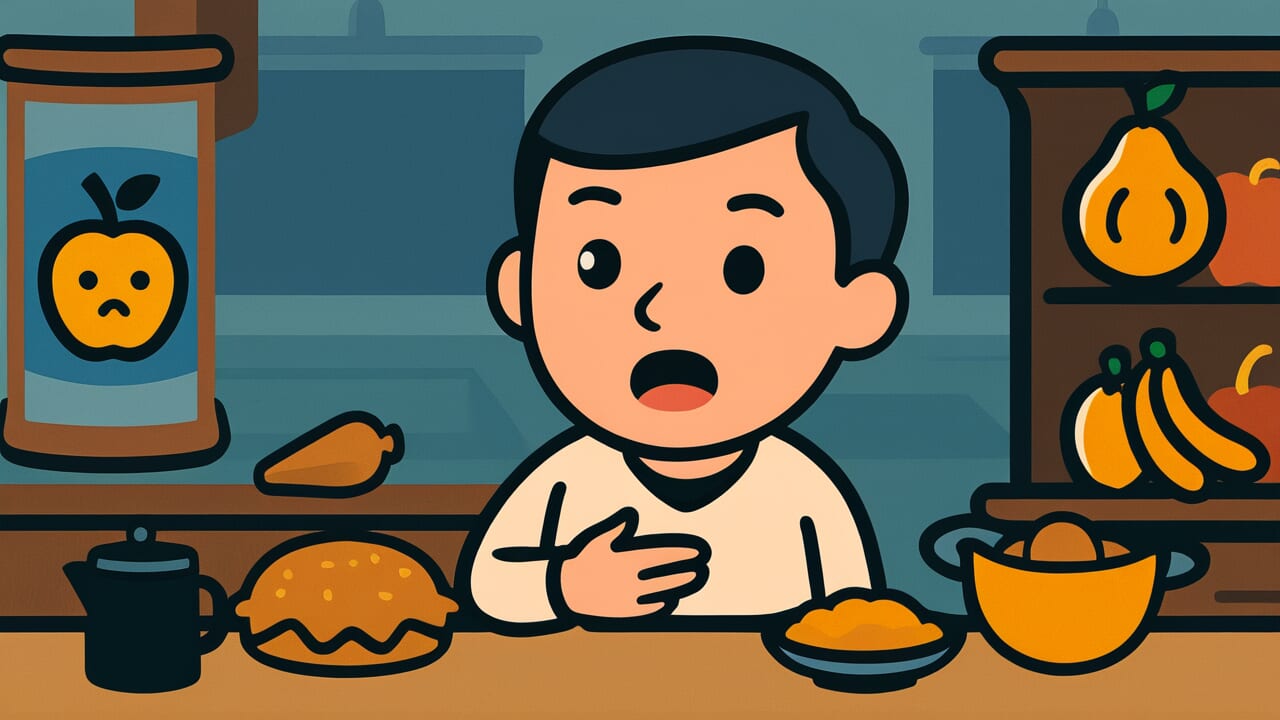How to Read “When hungry, one does not choose food”
Uete wa shoku wo erabazu
Meaning of “When hungry, one does not choose food”
“When hungry, one does not choose food” means that in extremely difficult situations, you can’t afford to be picky. When you’re starving and close to death, you can’t complain about what you like or dislike.
Whatever food is in front of you, you have no choice but to eat it.
This isn’t just about food. It applies to all areas of life. When you’re in a desperate situation, you can’t chase ideals or hopes.
You must choose from whatever options are available right now. This proverb expresses that human reality.
Situations where you can’t choose your job. Situations where you can’t choose where to live. Situations where you can’t choose who to ask for help.
When you’re cornered, you can’t afford to be luxurious.
This proverb is often used for people facing difficult situations. It functions as words that encourage accepting reality.
Origin and Etymology
The origin of this proverb likely traces back to ancient Chinese classics. The most accepted theory is that it comes from an expression in the “Book of Rites,” a Confucian text.
The original phrase was “When hungry, one does not choose food; when cold, one does not choose clothing.” This showed the principle of human behavior in extreme conditions.
Ancient China developed a culture that valued etiquette and dignity. Even in eating, there were detailed rules about what to eat and how to eat it.
Food choices were determined by social status and position. However, such social norms become meaningless when facing a life-threatening crisis.
In the extreme state of starvation, you must eat things you normally wouldn’t. This was a phrase that faced this reality directly.
It came to Japan along with Chinese classics and likely spread as part of samurai education. For Japanese people living through warring periods, these words weren’t just lessons.
They were truth backed by real experience. After the Edo period, it spread among common people too.
It became established as a proverb showing the mindset needed during hardship.
Usage Examples
- My company went bankrupt and my savings ran out, so when hungry, one does not choose food—I have to take even jobs with bad conditions
- In the evacuation shelter isolated by disaster, it was a state of when hungry, one does not choose food, and people silently ate the emergency rations distributed
Universal Wisdom
The proverb “When hungry, one does not choose food” offers deep insight into the boundary between human dignity and survival instinct. We normally live cherishing our preferences, values, and pride.
But when truly cornered, this proverb teaches us that such “freedom to choose” is merely a luxury.
Humans have two faces. One is the face as a cultural being. The other is the face as a biological creature.
We receive education, learn social norms, and develop aesthetic sense and ethics. But when facing a life crisis, the most fundamental desires overwhelm everything else.
This isn’t shameful. It’s a natural response as a living being.
This proverb has been passed down for so long because it acknowledges both human weakness and strength. The weakness is losing freedom of choice in extreme situations.
The strength is the will to survive anyway. It’s easy to talk about ideals, but before harsh reality, surviving comes first.
Accepting this cold truth may actually make humans humble. It cultivates gratitude for the small freedoms of choice in daily life.
When AI Hears This
Looking at human decision-making mathematically reveals something interesting. The number of choices and quality of choices completely depend on physical comfort.
Research measuring brain energy consumption shows that prefrontal cortex activity drops up to 40 percent when hungry. The prefrontal cortex governs rational judgment.
In other words, when starving, the brain literally loses its “ability to choose.” This isn’t a malfunction but a rational judgment for survival.
Concentrating limited energy on “eating now” rather than “thinking about what to eat” increases survival probability.
What’s more interesting is that this phenomenon happens in stages. With mild hunger, choices reduce from 10 to about 7.
With severe starvation, it becomes 2 choices, then finally 1 choice—”eat what’s in front of you.” In Maslow’s hierarchy, the lower the unmet need, the more exponentially freedom of choice decreases.
Even our daily decisions that feel like “free choices” are actually luxurious activities built on the foundation of being full. Philosophers can debate “free will” perhaps because they aren’t starving.
Lessons for Today
What this proverb teaches modern you is the blessing of “being able to choose.” Being able to wonder what to eat today.
Being able to think about which job to apply for. Being able to choose where to live. These are all signs of a fortunate situation.
At the same time, this proverb shows the mindset needed when facing difficulties. When suffering from the gap between ideals and reality, you need courage to move forward with available options.
You can’t just wait for perfect choices. This isn’t compromise but wisdom for survival.
Modern society values “being yourself” and “having standards,” but flexibility matters too. Career choices, relationships, lifestyle—nobody can make everything ideal.
Change priorities according to situations. Accept what should be accepted. Such flexibility sometimes leads to long-term success.
Be grateful for the happiness of choosing, while facing forward even when you can’t choose. This proverb quietly teaches such balance.



Comments